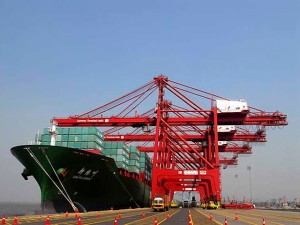Today’s ABC News item concerning Board members of the Great Barrier Reef Marine Park Authority provides a salutary reminder of the personal and corporate due diligence obligations of corporation directors.
Port developments affecting the Great Barrier Reef  World Heritage area are at approvals stage. FOI documents are said to show that the Authority’s Board altered a draft recommendation so as to avoid clearly rejecting support for Port activities in locations that might degrade inshore biodiversity.
World Heritage area are at approvals stage. FOI documents are said to show that the Authority’s Board altered a draft recommendation so as to avoid clearly rejecting support for Port activities in locations that might degrade inshore biodiversity.
Due diligence principles in environmental management require directors to take active steps and practical measures to ensure that their corporation is undertaking best industry practice. In managing hazards, due diligence means ensuring compliance with environmental legislation. This involves ensuring a system of ongoing environmental assessment and, if appropriate, audits, remedial measures and contingency plans for spills, training programs, sufficient authority to act and other indices of a proactive environmental policy. The Canadian case of R v Bata Industries Ltd (1992) 7 CELR (NS) 245 (Ontario) set the following paradigms, that have been adopted by Australian commentators.
(a) Did the board of directors establish a pollution prevention system ie was there supervision, inspection, improvement in business measures and Board influence and control to ensure implementation (R v City of Sault Ste Marie (1978) 85 DLR (3d) 161)?
(b) Did each director ensure officers were instructed to set up a sufficient system according to industry practice for compliance with environmental laws, ensuring officers reported back periodically to the Board on the system’s operations and ensure that officers were instructed to report to the Board regarding any substantial non-compliance in a timely fashion?
(c) Did directors review environmental compliance reports provided by officers? Note, in certain circumstances, the Board can be justified in relying on reports by informed parties.
(d) Did directors substantiate that officers were promptly addressing environmental concerns brought to their attention by government agencies or other concerned parties?
(e) Were directors aware of industry standards and of standards applicable to other industries dealing with similar pollutants or risks?
(f) Were directors positioned to respond immediately, and personally, should they notice a system failure?
Within such a general due diligence checklist, one would expect to see an ongoing, and fully frank, assessment of all known or potential environmental risks along with the development of objectively sound processes for compliance and monitoring.
Lawyers can assist Boards and their directors to meet corporate legal obligations. This is likely to focus strongly on regulatory compliance. Rather than being seen as a burden to escape wherever possible, regulatory change has the potential to positively impact entrepreneurial opportunity and should be embraced positively. Regulation, properly managed, presents an opportunity to business ventures and major infrastructure projects such as Ports, particularly where full advantage is taken of the new networks and relationships it mandates.

Leave a Reply